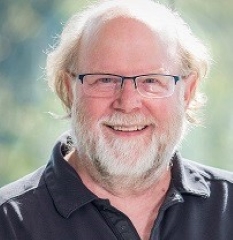
Ed Harlow, PhD
Dr. Edward (Ed) E. Harlow, Jr. Ph.D. is a distinguished molecular biologist and an internationally recognized leader in cancer biology, who is best known for his discoveries regarding the control of cell division and critical changes that allow cancer to develop. He currently splits his time between an appointment as Professor of Biological Chemistry and Molecular Pharmacology at Harvard Medical School and Senior Advisor to the Director, National Cancer Institute. He served as Chief Scientific Officer of Constellation Pharmaceuticals, Inc. from 2009 to 2011. From 1998 to 2009, he served as Professor and Chair of the Department of Biological Chemistry and Molecular Pharmacology at Harvard Medical School and was Associate Director of the Dana-Farber/Harvard Cancer Center. From 1990 to 1998, he served as Scientific Director for the Massachusetts General Hospital Cancer Center and was Associate Director for Science Policy at the National Cancer Institute, where he helped direct U.S. cancer research planning. Prior to 1990, Dr. Harlow served on the faculty of Cold Spring Harbor Laboratory. Dr. Harlow has served on a number of influential advisory groups, including the Board of Life Sciences for the National Research Council, External Advisory Boards for UCSF, Stanford, UCLA, and NYU Cancer Centers and the Scientific Advisory Board for the Foundation for Advanced Cancer Studies. He has chaired or served on numerous biotechnology and pharmaceutical companies advisory boards, including Onyx, 3V Biosciences, Alnylam, and Pfizer Pharmaceuticals. Dr. Harlow has received numerous scientific honors, including election to the National Academy of Sciences in 1993 and the Institute of Medicine in 1999, appointment as Fellow of the American Academy of Arts and Sciences, and recipient of the American Cancer Society's highest award, the Medal of Honor. Dr. Harlow with Dr. David Lane are co-authors of one of the all time best-selling research manuals, Antibodies: A laboratory manual. Dr. Harlow received his B.S. and M.S. from the University of Oklahoma and his Ph.D. at the Imperial Cancer Research Fund in London in 1982.
Genes Dev
View full abstract on Pubmed
EMBO J
View full abstract on Pubmed
Science
View full abstract on Pubmed
Proc Natl Acad Sci U S A
View full abstract on Pubmed
Proc Natl Acad Sci U S A
View full abstract on Pubmed
Proc Natl Acad Sci U S A
View full abstract on Pubmed
Mol Cell Biol
View full abstract on Pubmed
Genes Dev
View full abstract on Pubmed